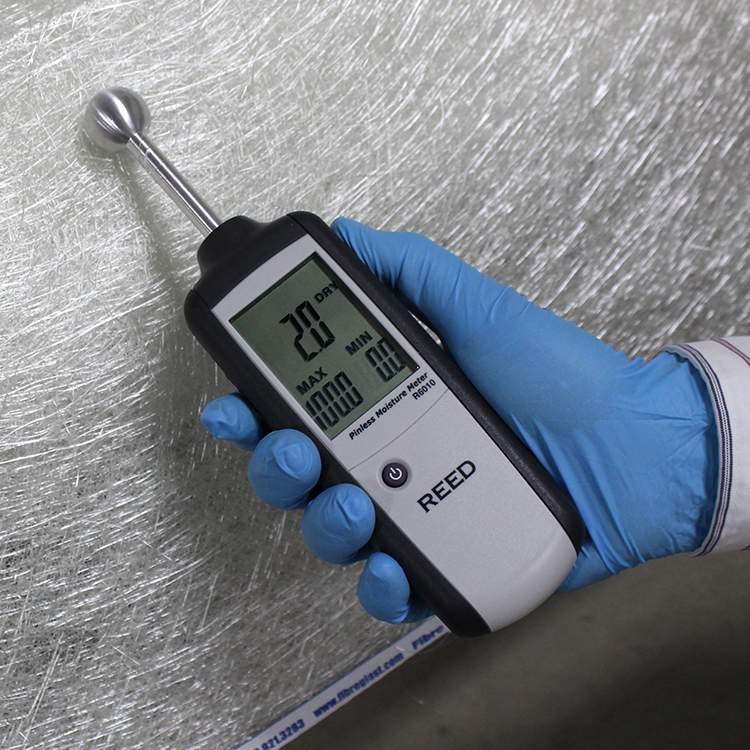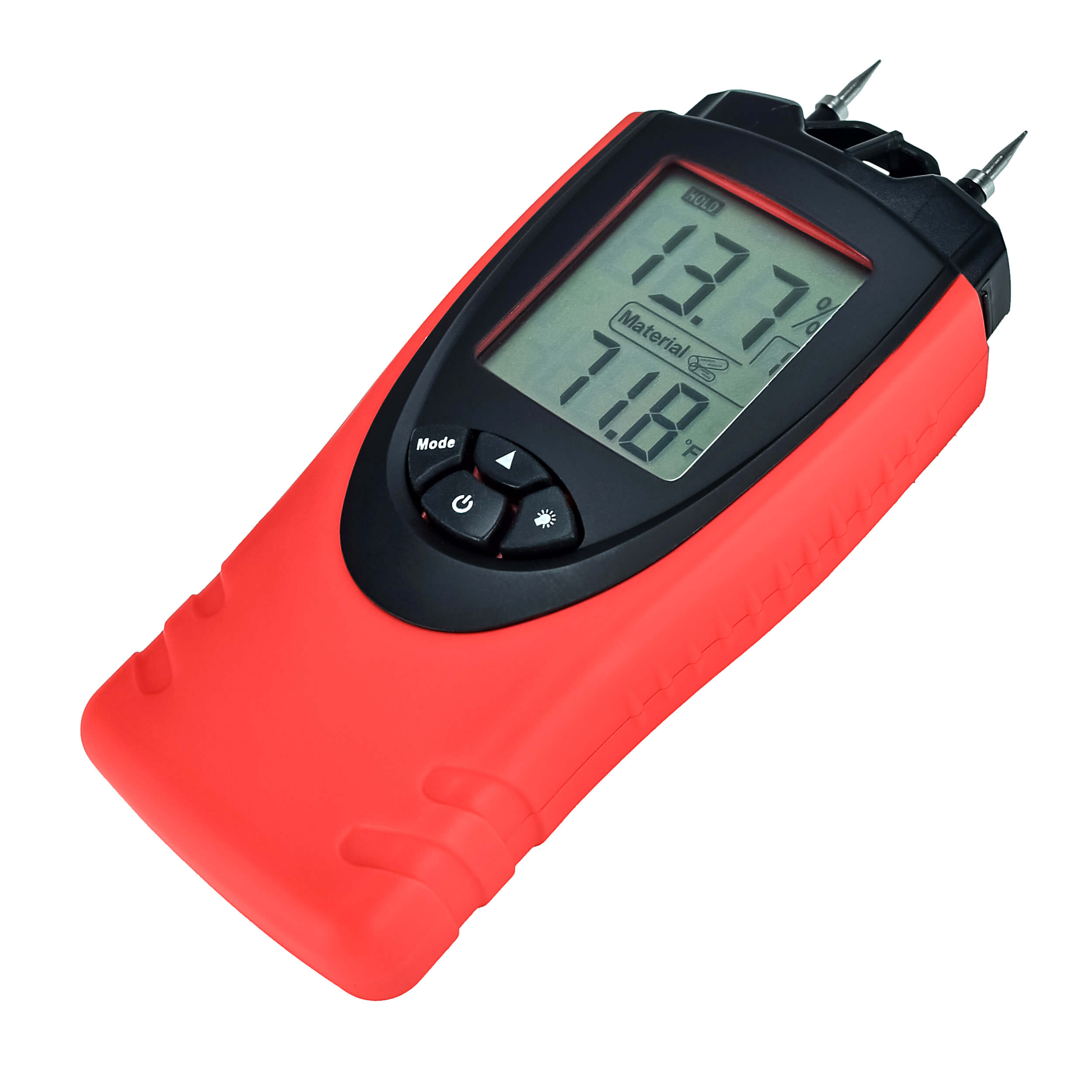Moisture Meter Reviews: Contrasting the most effective Versions for Professional and DIY Use
Moisture Meter Reviews: Contrasting the most effective Versions for Professional and DIY Use
Blog Article
The Ultimate Guide to Moisture Meters: A Comprehensive Summary and How They Can Save You Money
In the world of structure maintenance, building, and various markets, the value of precisely measuring dampness degrees can not be overstated. Dampness meters offer as essential devices in identifying and monitoring moisture content in products, helping in stopping costly problems and making sure the quality of items. Comprehending the nuances of various types of dampness meters, their applications, and the potential cost-saving advantages they use can be a game-changer for specialists and companies alike. Finding how these tools can not only simplify processes yet also add to financial cost savings is a journey worth starting.
Sorts Of Moisture Meters
Different sorts of wetness meters are available for different applications in numerous industries. One typical kind is the pin-type moisture meter, which determines the electric resistance between 2 pins inserted into a product. This kind is suitable for timber, drywall, and various other building materials. Pinless wetness meters, on the other hand, usage electro-magnetic sensing unit plates to check a larger location without triggering damages to the material's surface. These meters are ideal for swiftly analyzing moisture levels in big areas such as floors and wall surfaces.
Moreover, there are additionally specialty dampness meters designed for particular products like hay, dirt, or grain. These meters give exact dampness analyses tailored to the distinct residential or commercial properties of the material being checked. Infrared wetness meters determine the thermal homes of a product to identify its wetness material non-invasively, making them helpful for applications where pin or pinless meters might not appropriate. Comprehending the different kinds of moisture meters available can help sectors choose the most ideal device for their details wetness measurement needs.

Benefits of Using Moisture Meters

Additionally, making use of dampness meters can lead to raised energy effectiveness. By recognizing locations with high dampness degrees, such as leaks or poor insulation, modifications can be made to boost energy preservation and lower utility expenses. In farming setups, dampness meters play a crucial role in optimizing crop returns by enabling farmers to monitor soil moisture levels and make educated watering decisions. In general, the benefits of using moisture meters span across various industries, offering economical services and promoting better quality control practices.
How to Choose the Right Moisture Meter
Selecting the ideal dampness meter includes considering vital aspects such as material compatibility, dimension array, and calibration accuracy. When picking a wetness meter, it's vital to guarantee that the meter appropriates for the details material you will be screening. Different products have varying electric properties that can influence wetness analyses, so choosing a meter made for your material is crucial for exact results. Additionally, think about the measurement variety of the dampness meter. Guarantee that the meter can spot dampness levels within the variety required for your applications. Calibration accuracy is an additional crucial variable to maintain in mind (Moisture Meter). Choose a wetness meter with reliable calibration to guarantee regular and accurate analyses. Some meters might require regular calibration changes, so understanding the calibration procedure is essential. By thoroughly reviewing these factors, you can select a wetness meter that fulfills your requirements and provides accurate moisture measurements for your jobs.
Correct Techniques for Moisture Meter Use
To make sure accurate moisture analyses and make the most of the performance of a wetness meter, employing appropriate techniques is essential. When making use of a pin-type wetness meter, put the pins or probes blog right into the material being tested till they make full call. By following these correct techniques, customers read this post here can rely on their wetness meter to provide credible dampness levels, helping in preventing expensive damage or guaranteeing quality in various applications.

Cost Cost Savings With Moisture Meter Applications
Just how can the strategic use of dampness meters lead to substantial cost savings across various markets? In the agriculture market, moisture meters help in establishing the optimum time for harvesting crops, preventing over-drying or excess moisture that can influence the last item's top quality.

Furthermore, in the food handling sector, dampness meters are crucial for monitoring item top quality and making certain conformity with safety and security laws. By properly gauging dampness material in food, producers can stop perishing, keep freshness, and minimize waste, leading to significant cost financial savings. Generally, the critical application of dampness look at this web-site meters is a beneficial financial investment that can result in substantial price decreases and enhanced efficiency throughout different markets.
Verdict
In verdict, moisture meters are useful devices for discovering and gauging wetness degrees in numerous materials. By using the appropriate moisture meter and complying with correct methods, individuals can properly avoid expensive problems caused by excess wetness.
Wetness meters offer as vital devices in spotting and monitoring moisture content in materials, helping in protecting against pricey damages and guaranteeing the top quality of products. Infrared moisture meters determine the thermal residential or commercial properties of a material to identify its wetness material non-invasively, making them beneficial for applications where pin or pinless meters might not be suitable.Moisture meters offer indispensable advantages in precisely checking and assessing wetness levels in diverse materials and atmospheres. In agricultural settings, moisture meters play an essential function in optimizing crop yields by making it possible for farmers to monitor dirt dampness degrees and make notified irrigation choices.In verdict, moisture meters are valuable tools for identifying and determining moisture levels in various materials.
Report this page